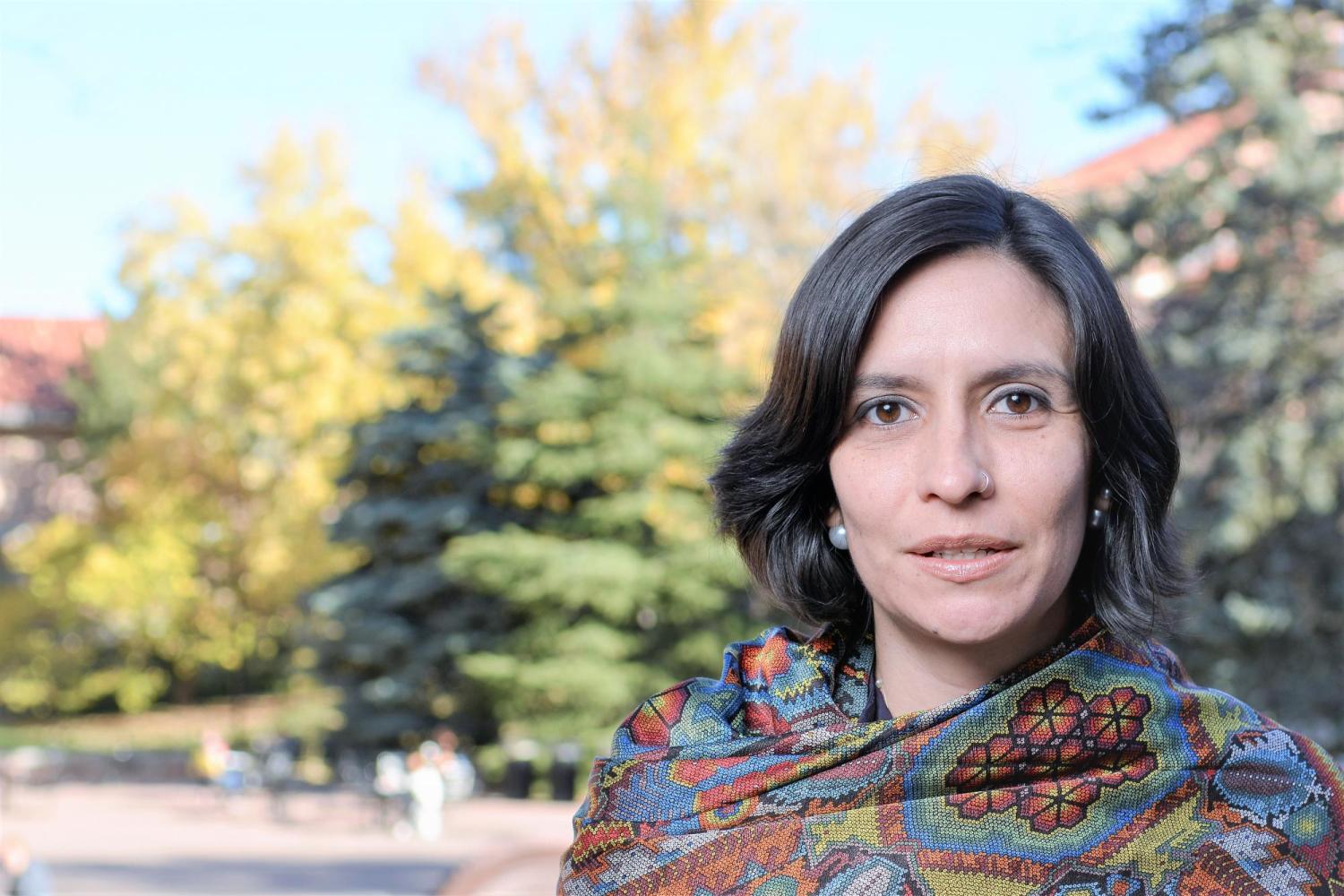Teaching Excellence Spotlight - Bertha Alicia Bermúdez Tapia

Bertha Alicia Bermúdez Tapia is a sixth year PhD student studying Sociology. Her research focuses on the qualitative aspects of the relationship between migration, asylum, deportation, and border lives, particularly exploring community responses to restrictive immigration policies and violence on the US Mexico Border. Bertha was recently awarded a Teaching Excellence Award based on her teaching philosophy and dedication to her students. We asked Bertha a few questions to learn more about her as a teacher and get to know her better. Read more below!
What is your favorite part about teaching?
The interaction with my students. For me, teaching is a dual process where you learn with and from your students. That is an irreplaceable gift that you get when you teach.
Please tell us a little bit about your pedagogical philosophy.
My teaching philosophy is a reflection of my commitment to social justice and change. I do believe that we can combine rigorous and excellent academic work with the vision of a more egalitarian society. When I teach, I believe the teaching process should be inclusive, diverse, and should follow an evolving journey. For me, teaching is a process that should change according to the needs of each group of students and can lead me and my students to a more comprehensive understanding of social processes and how, with that knowledge, we can procure a better world.
Do you have a favorite teaching resource you would like to share with other graduate teachers?
Students usually ask for study guides. However, I am not a big fan of them. So what I do is I create a collaborative area in Google Docs, where I share the main topics the exam are going to include and ask the students to "feed" the guide as a team. This is very beneficial for all of them, and they really enjoy working together.
Do you have any recommendations for continuing or increasing student advocacy and engagement?
As an international student and as a woman of color, teaching is an opportunity to reflect on my positionality and to use of diverse perspectives to engage with my students. One of my personal teaching goals is to provide inclusive syllabus with significant number of diverse authors, including women, people of color, and international scholars so that students can reflect on how different disparities affect people differently, and how we can address major topics using a diverse and inclusive learning agenda. For me, teaching must include an ethical commitment to be there for your students, to be more than a facilitator, and to teach them more than theory and methods; my aim is to serve as an example of how they can make a difference in others people’s life and to develop a critical view of the world.
Tell us a fun fact about you that is not related to your teaching and research.
I love taking pictures. By no means I claim to be a professional photographer, but it’s a passion of mine. I love to have a camera on my hands, I can spent a whole day taking photos of every detail surrounding me.
What is a good book you have read recently and why did you enjoy it?
I did not read it recently, but a book that I have been thinking about lately and is one of my favorites is: Blindness (Ensaio sobre a cegueira). Is a novel by Portuguese author José Saramago. Is the story of an unexplained mass epidemic of blindness afflicting nearly everyone in an unnamed city, and how slowly the whole world quarantined and slowly shut down.
If you could have dinner with anyone (living or dead), who would it be and why?
I would love to have dinner with Chavela Vargas. She was a Costa Rican-born Mexican singer who interpreted Mexico’s ranchera songs. Ranchera music was typically sung in a sentimental style by men accompanied by guitars, trumpets, and other instruments, but Vargas performed in a stripped-down fashion with only a guitar and sang with raw emotion.

